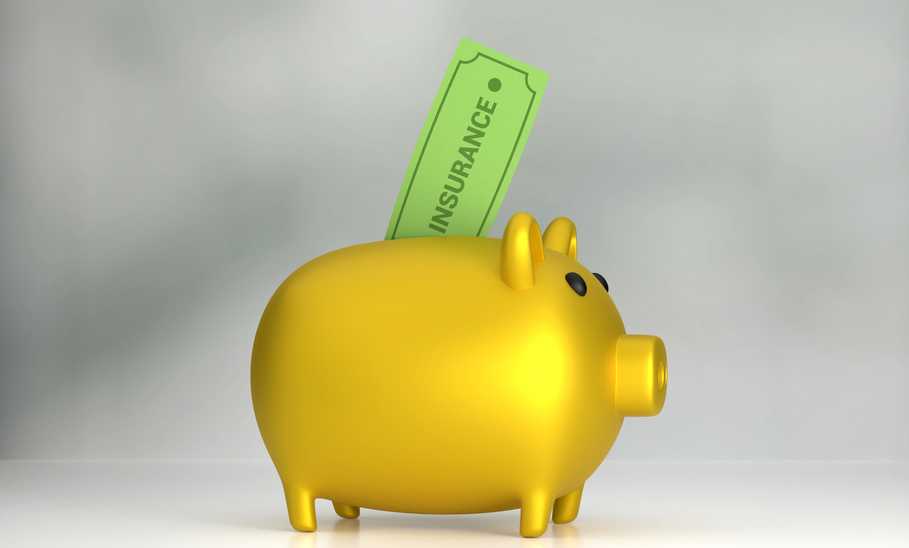- You can access some money while you’re still alive.
- The death benefit is tax free.
- Your cash value grows tax deferred.
Cash Value Life Insurance: A Comprehensive Guide

Our evaluations and opinions are not influenced by our advertising relationships, but we may earn a commission from our partners’ links. This content is created by TIME Stamped, under TIME’s direction and produced in accordance with TIME’s editorial guidelines and overseen by TIME’s editorial staff. Learn more about it.
Cash value life insurance, which is a type of permanent life insurance, can help you provide for your family (or other beneficiaries) after your death while offering a savings feature from which you can benefit while living.
Any permanent life insurance policy, such as whole or universal life, typically has a cash value feature that acts as a sort of savings account. It’s funded with part of your premium payments and earns interest depending on the specific type of life insurance policy. Once the cash value reaches a certain amount, you can access it by making a withdrawal, taking out a loan against the policy, or surrendering (canceling) the policy.
Let’s take a closer look at cash value life insurance—how it works, its pros and cons—and explore whether it’s right for you.
Cash value is a feature of a permanent life insurance policy, which is one that remains in force until your death provided you make the annual premium payments and don’t choose to surrender it.
When you buy a policy with cash value, you choose a death benefit amount, which, along with your age, health, and other personal factors, helps the insurer determine what to charge you as an annual premium. The insurer then allocates each of your yearly payments to three things: your insurance coverage, the policy’s cash value, and the policy’s administrative fees.
The cash value grows not only through your premium payments but also through interest paid by the insurance company. Exactly how the policy earns interest is based on the specific type of cash value policy you buy. Each type offers varying levels of financial risk and reward.
The cash value also grows tax deferred, though you may have tax implications depending on how you access it. A qualified tax preparer can provide information and guidance about your particular situation.
Of course, if you die, your insurance company pays out the death benefit to your designated beneficiaries. At that point any cash value typically goes back to the insurer. Some may offer an optional rider (an amendment to the policy contract) that adds any remaining cash value to the death benefit, but it will likely add significantly to your policy’s premium.
Let’s take a look at an example of how cash value life insurance works.
Sarah and her 30-year old spouse have a new mortgage and an infant son. As the family’s primary breadwinner, Sarah decides to purchase a whole life policy with a $500,000 death benefit that costs $5,000 per year.
During the first few years of coverage, most of that $5,000 goes to fund the death benefit, but the policy’s cash value grows as well, amounting to $50,000 by the time Sarah turns 45. She decides to tap into that cash value when she leaves her corporate marketing job to start her own digital marketing agency, taking out a loan for $20,000. Within a few years the success of her fledgling business allows her to pay it back.
As the years pass, Sarah and her spouse pay off their mortgage and watch their son grow into an independent adult. The policy’s cash value now comes to nearly $150,000. As Sarah sells her successful agency and eases into retirement, she decides to tap into the cash value for extra retirement income and begins making withdrawals. Unlike her previous loan, they reduce the amount of the death benefit.
When Sarah dies at age 87, the policy’s death benefit—now reduced to $40,000—is paid to her surviving spouse.
Cash value life insurance may appeal to someone who needs coverage and is looking to diversify their investment portfolio. A cash value policy may also have some tax advantages. For example, the cash value grows on a tax-deferred basis, which means you won’t owe taxes on it to the Internal Revenue Service (IRS) as it accumulates.
For those seeking straightforward life insurance—financial security for their loved ones in case of an untimely exit—a term life insurance policy may be sufficient. Term life, which stays in force for a set number of years, does not have a cash value component. As a result it tends to cost far less in premiums than a cash value policy.
When considering your life insurance options, be sure you understand the advantages and disadvantages of a cash value policy.
As permanent life insurance, a cash value policy provides insurance coverage for the rest of your life. This is different from term life insurance, which expires after a set number of years. Having a cash value policy means you don’t have to worry about outliving your coverage.
Your beneficiaries will receive a death benefit upon your passing.
You can take advantage of your life insurance while you’re alive, accessing cash that can be put to any number of purposes. However, it can take a decade or longer before the cash value grows to a point at which you can access it. Why? Because during the early years of the policy, the insurer is putting a higher proportion of the premium payment toward the policy’s face value.
There are several types of cash value life insurance. Here are a few examples.
Whole life is a permanent policy with a fixed premium: The insurer cannot modify the premium based on market conditions or changes to your health. The cash value of a whole life policy grows at a guaranteed rate, though the amount of growth is typically limited. In this sense a whole life policy offers both limited risk and limited reward.
Some whole life policies are referred to as “guaranteed issue.” Often marketed to seniors, these policies usually require no medical exam. The amount of coverage provided with these policies is typically much lower than that of a standard whole life policy, and the cash value earnings potential is similarly limited.
An indexed universal life insurance policy offers a flexible death benefit that you can adjust as your needs change (this will also affect the amount of your premium). The insurer can also modify the premium or charge fees based on business needs.
The cash value of an indexed universal life insurance policy grows based on the performance of a stock index—such as the Dow Jones Industrial Average or the S&P 500—chosen by the insurer. Your cash value earnings may be subject to a cap (maximum) and floor (minimum). This can help minimize your losses when the index underperforms, but it will limit your earnings when the index performs strongly. For these reasons indexed universal life carries slightly more risk and offers more rewards than whole life.
Variable universal life insurance is usually considered to have an even higher degree of risk and reward than indexed universal life. With a variable policy the insurer invests your cash value funds in one of dozens of investment options from which you can choose. As with an indexed universal life policy, investment returns may be subject to caps and floors. These policies are also subject to higher administrative fees, as they’re considered securities.
The question of when to buy life insurance, whether cash value or term, varies by individual. However, if others, such as a spouse or children, depend on your income, buying life insurance should be on your to-do list.
It’s also important to understand that young people often pay less for life insurance, as they are usually in better health than their elders. People in their 20s may not think they need life insurance, but that is a great time to lock in a relatively low rate (depending on the type of policy) that they can carry through their life.
Cash value life insurance is a complicated product. While it may be possible to buy it directly from a company online or over the phone, it’s a good idea to consult with a professional.
An independent insurance agent is a licensed professional who typically represents multiple insurance companies. An agent can take time to understand your financial situation, goals, and concerns and match you with the type of policy and company that best suits your needs.
You also may want to talk to a fiduciary financial advisor, who can walk you through how such a policy might fit into your broader investment portfolio. Some advisors are also licensed insurance agents, while others can refer you to insurance agents they know and trust.
Another thing to consider is the high cost of cash value life insurance. Those buying cash value can expect to pay many times more for coverage than those opting for term life coverage.
According to a March 2024 study by U.S. News & World Report, a male, 30-year-old nonsmoker in average health would pay $104 per month for a 30-year term life policy with a $1 million death benefit. That same person would pay $831 per month for $1 million of whole life coverage.
Your policy contract will provide specifics on how to access your cash value once it reaches a certain threshold. You can usually access it in one of three ways.
Different types of life insurance policies accumulate cash value using different approaches. Each approach carries its own recipe of risk and reward.
A whole life policy, for instance, accumulates cash value based on formulas devised by the insurance company. These low-risk policies offer guaranteed but modest growth.
Those seeking more aggressive growth might consider an indexed policy. Cash value growth in these policies is usually tied to a stock index such as the S&P 500. The risk, however, is greater.
Those with the mind (and stomach) of an investor might want to opt for a variable universal policy. With these policies the insurer invests funds in multiple subaccounts, similar to mutual funds, chosen by the policyholder. The cash value grows or shrinks based on the performance of these investments.
Generally speaking, you can use your cash value for any purpose you see fit, including home renovations, education, medical bills, or just to enhance your cash flow. It’s also common for a policyholder to tap into the cash value to pay the policy’s premium or increase the policy’s death benefit. Each insurer has different rules regarding these uses.
Just keep in mind that your cash value is not free money. Accessing it may affect your policy’s death benefit and have tax implications. You’ll want to consider your use of your cash value against other potential funding sources, such as personal loans, should you have a need.
Cash value life insurance isn’t the only way to ensure financial stability for your family. Consider the following alternatives.
Term life insurance has no cash value, expires at the end of a set term, and costs far less than a cash value policy. Most people’s life insurance needs can be met through term life.
When you buy an annuity, you enter into a contract with an insurance company and pay a lump-sum premium. The insurer invests the premium and allows the cash value to grow tax deferred. At a point specified in the contract, the insurer begins making payments back to you. There are multiple types of annuities, and many people rely on these to ensure a steady stream of income in retirement.
A cash value life insurance policy offers financial security for your beneficiaries in the event of your death and benefits you can enjoy while living. All permanent insurance policy types, such as whole life and universal life, have a cash value feature, which acts as a savings account that grows over time through your contributions and interest paid by the insurance company. You can access your cash value by making a withdrawal, taking out a loan, or surrendering the policy.
Cash value returns may be lower than those you can get with a traditional investment vehicle, such as a Roth IRA or 401(k). Still, for individuals who have maxed out those investments, a cash value life insurance policy may be worth considering. A fiduciary financial advisor can help you understand cash value life insurance and its potential return on investment.
It can take many years to build up a significant cash value, as a higher portion of the premium in the early years of a policy is put toward that policy’s face value.
In general, any interest earned by a cash value policy is tax deferred. You may have to pay taxes when you make a withdrawal or surrender the policy. A life insurance policy’s death benefit is typically not taxable.
Any information in this article related to taxes is provided for informational purposes only and is not intended as tax advice. Please discuss your needs with a qualified tax preparer.
The information presented here is created by TIME Stamped and overseen by TIME editorial staff. To learn more, see our About Us page.



